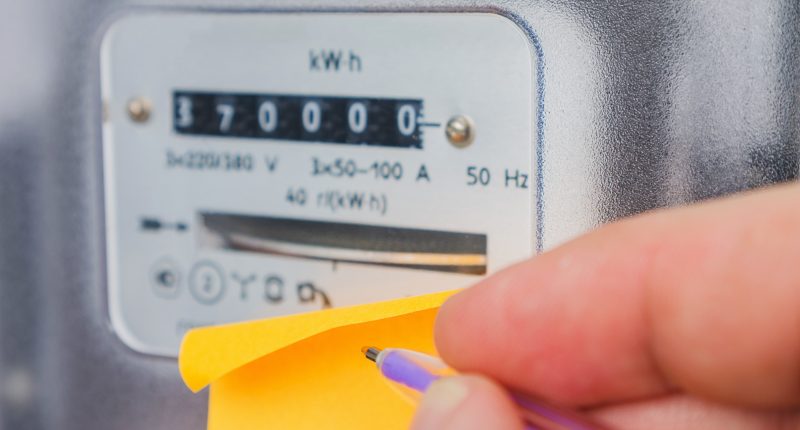MILLIONS of households must make a vital move ahead of a big change to energy prices coming soon.
Bills are set to rise by £94 for millions of households in the new year in a blow for households.
The energy regulator Ofgem has confirmed the new price cap, which comes into effect on January 1.
The cap will rise from £1,834 to £1,928 a year, which means the average household will see their annual bill increase by £94.
But households need to make sure they have taken a meter reading before midnight on December 31.
An updated meter reading helps stop your supplier from determining bill prices that aren’t accurate to your usage.
READ MORE IN MONEY
In addition, if you are disputing a bill, taking a meter reading is a must.
If it’s lower than your estimate, you can ask your provider to lower your monthly direct debit to a more suitable amount.
The energy price cap works by setting a limit on the maximum amount suppliers can charge for each unit of gas and electricity.
It’s not a cap on how much you can be charged for the energy that you use – so if you use more, you’ll pay more.
Most read in Money
Below we explain how gas and electricity rates are changing and how you can calculate your bill.
How are gas and electricity rates changing and how can I calculate my bill?
Currently, a typical household that pays their energy bill by direct debit pays the following rates:
- 6.89p per kWh for gas
- 27.35p per kWh for electricity
- A standing charge of 53.37p per day for electricity
- A standing charge of 29.62p per day for gas
But from January 1, Ofgem will introduce the following new rates:
- 7.42p per kWh for gas
- 28.62p per kWh for electricity
- A standing charge of 29.60p per day for gas
- A standing charge of 53.35p per day for electricity
To calculate how much you will pay from July 1, you will need to find out both your unit rate for gas and electricity and the standing charge for each fuel type.
The unit rate will usually be shown on your bill in p/kWh.
The standing charge is a daily charge that is paid 365 days of the year – irrespective of whether or not you use any gas or electricity.
You will then need to note down your own annual energy usage from a previous bill.
Once you have these details you can work out your gas and electricity costs separately.
Multiply your usage in kWh by the unit rate cost in p/kWh for the corresponding fuel type – this will give you your usage costs.
You’ll then need to multiply each standing charge by 365 and add this figure to the totals for your usage – this will then give you your annual costs.
Divide this figure by 12 and you’ll be able to work out how much you should expect to pay each month from January 1.
The average prepayment meter household currently pays:
- 6.67p per kWh for gas
- 26.92p per kWh for electricity
- A standing charge of 34.20p per day for gas
- A standing charge of 55.52p per day for electricity
From January 1 PPM customers will pay the following:
- 7.24p per kWh for gas
- 28.17p per kWh for electricity
- A standing charge of 33.32p per day for gas
- A standing charge of 55.53p per day for electricity
Households who don’t pay by direct debit or a prepayment meter and instead pay on receipt of their bill will spend slightly more.
Read more on The Sun
This is because there’s a separate unit rate and standing charge cap for this payment method.
Ofgem used to set the price cap every six months. But since August last year, it now reviews the limit every three months.










